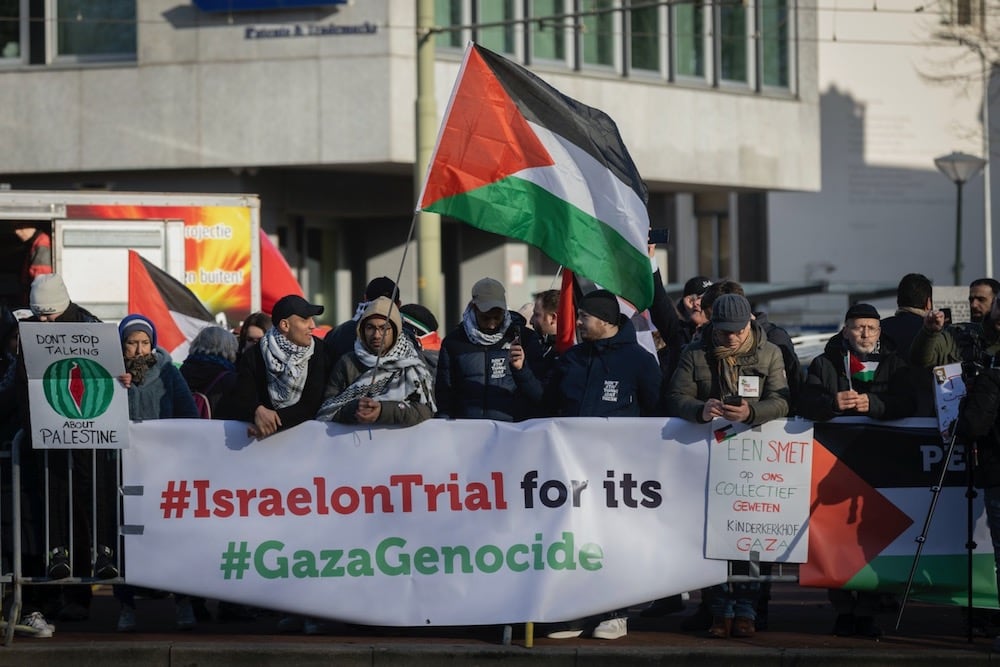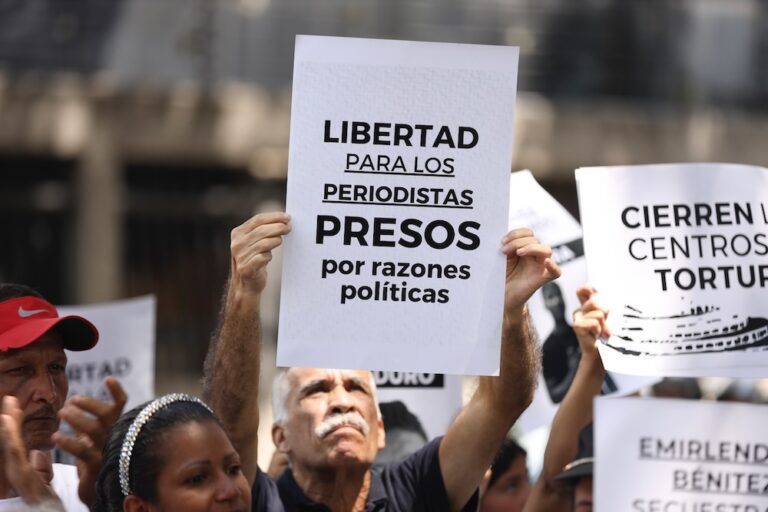"Lives hang in the balance, and governments need to urgently use their leverage to ensure that the order is enforced."
Ed. Note: At the time of publishing this piece, we at IFEX are bearing witness to the atrocious escalation of violence in Palestine and Israel. In this worrisome context, we express our firm solidarity with IFEX members MADA, 7amleh, I’Iam and Visualizing Impact, and with our colleagues throughout the region, as the consequences of the conflict spread beyond their borders.
This statement was originally published on hrw.org on 26 January 2024.
The International Court of Justice (ICJ) ordered provisional measures on January 26, 2024, in South Africa’s case alleging that Israel is violating the Genocide Convention, Human Rights Watch said today. The court adopted “provisional measures,” or binding orders, that include requiring Israel to prevent genocide against Palestinians in Gaza, enable the provision of basic services and humanitarian assistance, and prevent and punish incitement to commit genocide.
The ICJ held hearings on January 11 and 12 to consider South Africa’s request for provisional measures, which featured the first formal response by Israel before an independent and impartial court to allegations of atrocities against the Palestinian people since October 7, 2023. On December 29, 2023, South Africa had filed a case with the court alleging that Israel is violating the 1948 Convention on the Prevention and Punishment of the Crime of Genocide.
“The World Court’s landmark decision puts Israel and its allies on notice that immediate action is needed to prevent genocide and further atrocities against Palestinians in Gaza,” said Balkees Jarrah, associate international justice director at Human Rights Watch. “Lives hang in the balance, and governments need to urgently use their leverage to ensure that the order is enforced. The scale and gravity of civilian suffering in Gaza driven by Israeli war crimes demands nothing less.”
The ICJ concluded it was necessary to indicate certain measures “in order to protect the rights claimed by South Africa that the Court has found to be plausible,” including “the right of the Palestinians in Gaza to be protected from acts of genocide.” The court’s order also requires Israel to prevent the destruction and ensure the preservation of evidence related to the case, as well as to report on the implementation of the measures ordered within one month.
The order is legally binding on the parties. Although South Africa had requested certain other measures in their application, the court’s rules allow the judges to determine what measures to order. The provisional measures order will be automatically sent to the UN Security Council.
The case before the ICJ is not a criminal case against individual alleged perpetrators and it does not involve the International Criminal Court (ICC), a separate body. Rather, the case is “state-to-state” litigation between UN member states governed by legal provisions in the UN Charter, the ICJ Statute, and the Genocide Convention.
ICC Prosecutor Karim Khan recently confirmed that his office has since March 2021 been conducting an investigation into alleged atrocity crimes committed in Gaza and the West Bank since 2014, and that his office has jurisdiction over crimes in the current hostilities between Israel and Palestinian armed groups that covers unlawful conduct by all parties.
“The ICJ’s speedy ruling is recognition of the dire situation in Gaza, where civilians face starvation and are being killed daily at levels unprecedented in the recent history of Israel and Palestine,” Jarrah said. “The court’s clear and binding order raises the stakes for Israel’s allies to back up their stated commitment to a global rules-based order by helping ensure compliance with this watershed ruling.”



